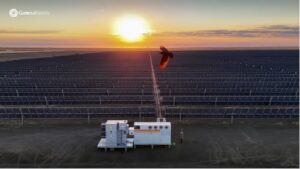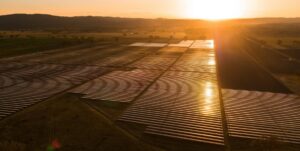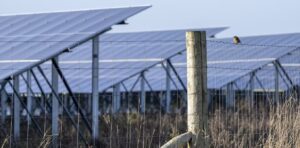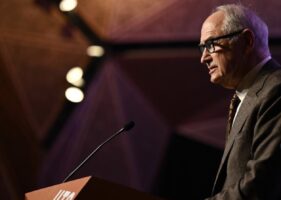PRESS RELEASE
Many Australian restaurants and cafes admirably reduce their environmental footprint by minimising waste, but until atiyah, none have been officially recognised by Climate Active as being a 100 per cent, carbon-neutral business.
Opening on Federation Square in early November, atiyah Lebanese streetfood is both the first hospitality business and start-up in Australia to be certified as carbon neutral by Climate Active (a partnership between the Australian Government and Australian businesses to drive voluntary climate action).
The idea came to founder Ben Armstrong as a solution to fulfil both his passion for sustainability and his mother-in-law’s enthusiasm for sharing her culture through Lebanese food. Armstrong realised that building a hospitality business from the ground up wasn’t just an opportunity to bring fulfilment, but to pave the way for other hospitality businesses.
“We have implemented sustainable strategies across every aspect of the business to set new standards in the hospitality industry. We want other business to follow our lead towards a sustainable future,” says Armstrong.
Michaela Morris is the principal consultant for Climate Change and Strategy at Ndevr Environmental. She explains that for any business to achieve carbon-natural status, it first has to reduce its carbon footprint as much as possible, and then purchase carbon offsets to cancel out the rest (from a reforestation project, for example). Ndevr helped atiyah with carbon accounting, a method that calculates a business’ carbon footprint.
“If you switch on a light, somewhere has to produce that electricity to come through the grid to your house, or if you buy a litre of fuel and drive somewhere, that creates greenhouse gas,” she says. “By quantifying your footprint, you understand what your share of responsibility is in climate change, and then you can act on it.”
atiyah has taken a pioneering approach to carbon neutrality, with every ingredient served in its Lebanese dishes being completely carbon neutral, thanks to relationships with sustainable suppliers and offsets purchased from a wind farm in India.
“I have never worked with another company that has basically come to us already having considered every aspect,” says Morris. “They have gone to extreme lengths to eliminate emissions where possible, and by choosing the lowest impact options across the whole lifecycle of the product. There is nothing we could suggest they could improve on.”
As Morris points out, the degree to which existing, immobile businesses can be carbon neutral is limited compared with atiyah, which has the advantage of starting from scratch and operating off-grid.
“The best attempts at sustainability I’ve seen so far from hospitality relate to reducing waste or using KeepCups, but they’re all spot fires – there’s no structured approach to it. This is really refreshing,” she says
Climate Active communications and engagement manager, Polly Hemming, says that achieving the carbon neutral certification is an extremely rigorous process with high standards.
“Our food contributes significantly to emissions and it’s great to see this leadership in the hospitality sector,” she says. “atiyah is the first restaurant to offer a carbon neutral certified menu to its customers.”
“There’s not much carbon labelling on food,” adds Morris. “There’s a bit from Europe, but I haven’t seen it implemented anywhere, really. atiyah is the first company to say, ‘We’re going to be completely transparent,’ and that’s really empowering for customers who care about that.”
Being off-grid is a huge advantage, with a similar, on-grid business model likely to produce an estimated four to six times more emissions. To obtain the carbon neutral certification from Climate Active, atiyah had to report on everything from how staff travel to work and the wattage their printing company uses, through to the entire journey of every ingredient in all of its menu items. That’s before taking into account atiyah’s solar panels, biodiesel generator, rainwater collection tanks, filtration systems, biodegradable packaging and more.
“If you get on a plane you know how much carbon is associated with flying and you can offset that,” says Morris. “We’re not there yet in Australia, but we will eventually quantify the climate change impact associated with every product, and food will just be part of that as well.”









